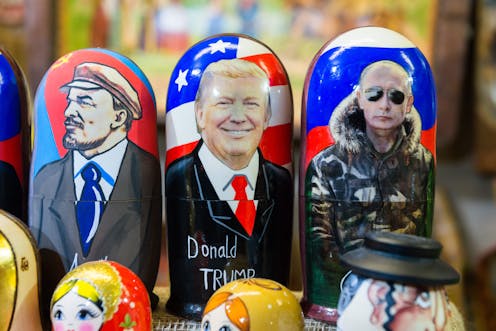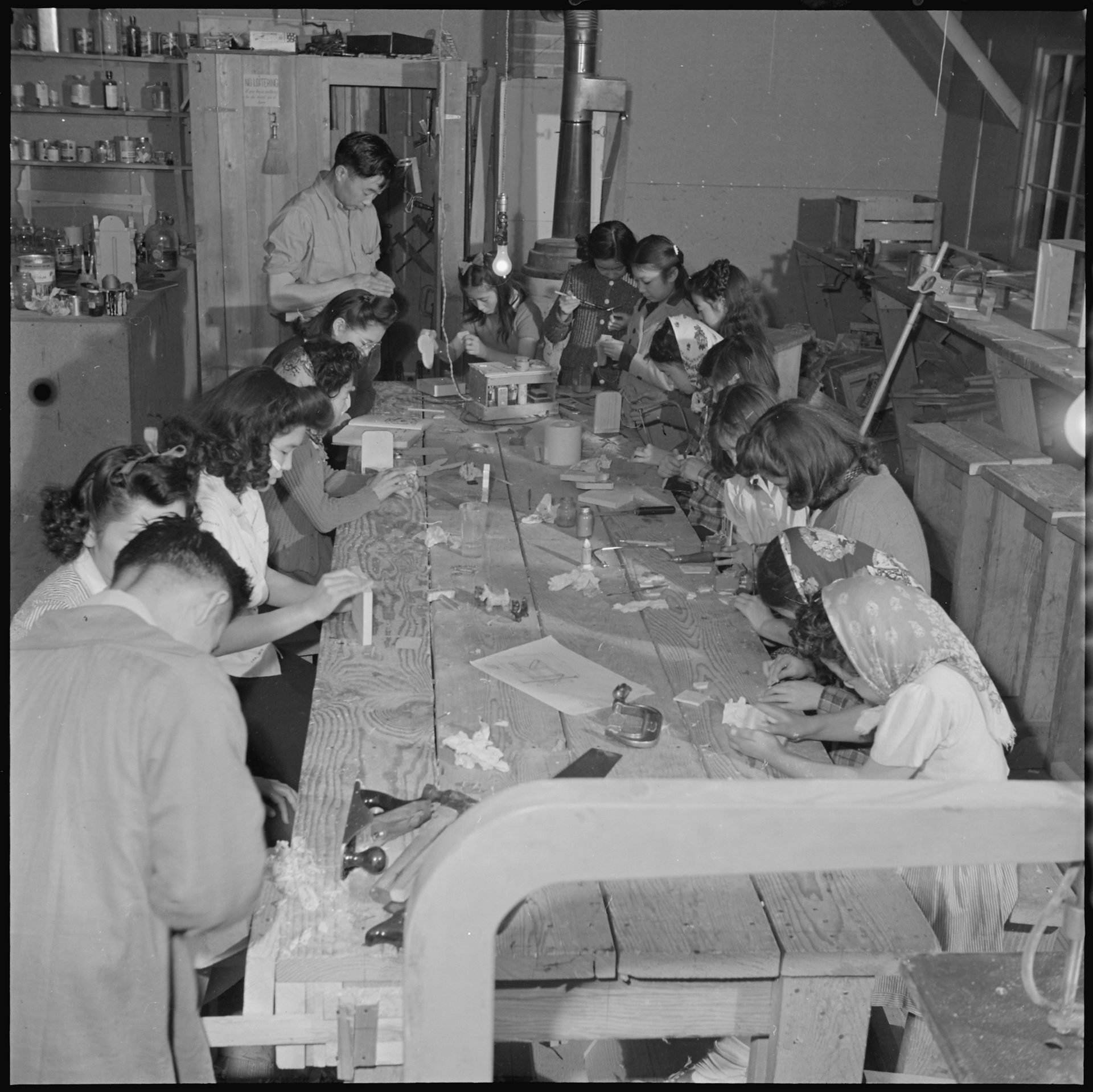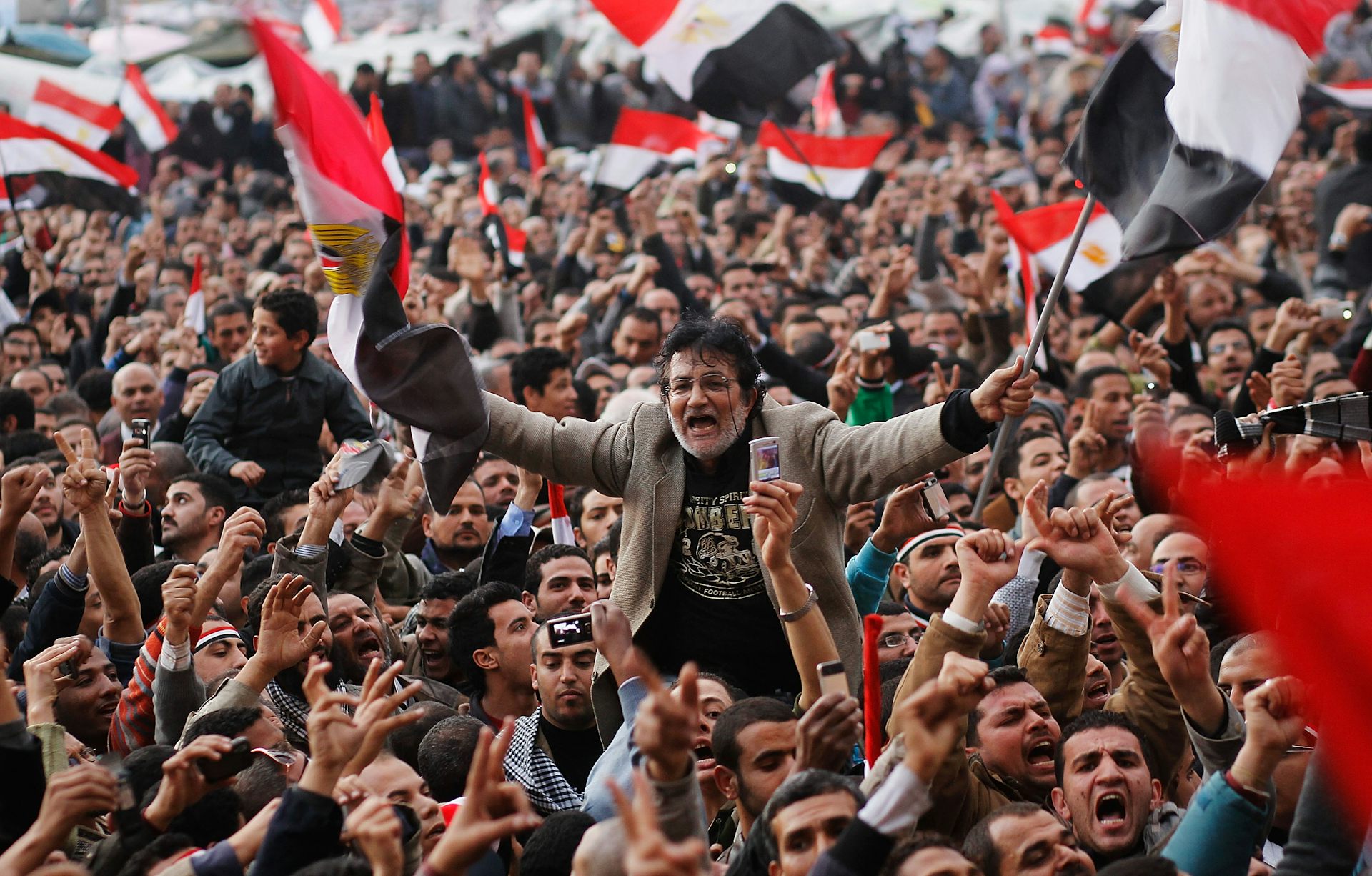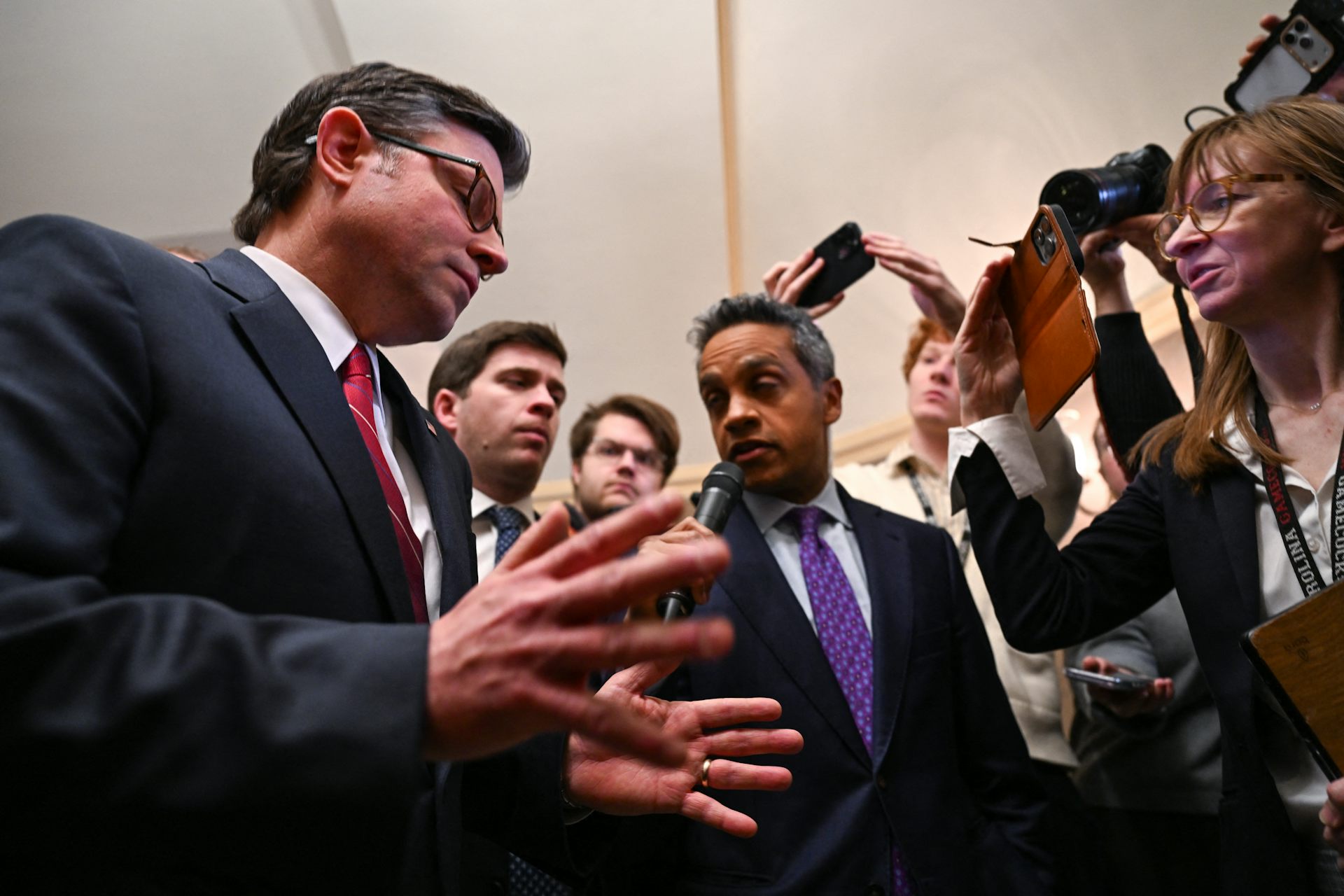Why are Russian media outlets hyping the Mueller investigation?
The country's state-run media outlets have been quick to denounce any election meddling talk as anti-Russian hysteria. So what's behind the shift in tone?

Four major Russia investigations are underway in Washington, along with at least six related federal inquiries.
Anxiety currently swirls around the Kremlin’s manipulation of popular social media platforms Facebook, YouTube and Instagram. Cybersecurity sleuths claim Russia used Pokemon Go to inflame racial tensions and accuse Twitter of deleting crucial data detailing Russian efforts to sow discord during the 2016 presidential election.
“Russia, Russia Everywhere,” read The New York Times Oct. 13 “Week in Technology” review.
But as a cultural historian, I’m interested in how Russia’s media outlets – many of which are state-controlled – are covering these same stories.
It’s no secret that for years the Kremlin has claimed Washington possesses a knee-jerk, anti-Russian bias. Moscow officials have cast recent U.S. charges that Russia has been acting to “undermine the U.S.-led liberal democratic order” as simply part of this same phenomenon, albeit one that has blossomed, of late, into full-fledged hysteria.
Russia’s most popular media outlets compare the investigations to those of the McCarthy era, calling them “witch hunts” focused on a “phantom menace.”
However, I’ve noticed something surprising. Amid all the emphasis of “Russophobia run wild,” Russian media coverage seems to have become more positive in regard to one issue: the Justice Department’s investigation led by Special Prosecutor Robert Mueller.
While state-sponsored outlets continue to deny any possible collusion between the Trump campaign and the Kremlin, they’ve begun to applaud Mueller’s efforts to look into the past business deals of the U.S. president and his team.
How to explain this development? After all, didn’t the Kremlin originally want Trump to win?
Robert Mueller…hero?
On Oct. 4, U.S. Senators Mark Warner and Richard Burr held a news conference to announce that their investigation into Russian meddling had expanded to include the use (and misuse) of social media.
Many U.S. news outlets covered the event as if it were a sign the Senate inquiry was shifting into high gear. “Top Senators Hint the Russian Investigation is Heating Up,” Business Insider proclaimed.
Russian media, on the other hand, sniffed. They reported on the event as if it were an admission that the charges were unfounded, and the scandal was over. (“Coming Up Empty Handed,” one headline read.)
Compare this, however, to the way Moscow’s three largest, government-controlled television stations reacted when news broke of a federal raid on the home of Donald Trump’s former campaign manager Paul Manafort. Gone was the mocking language that generally accompanies “Russiagate” coverage. Instead, they produced substantial stories on former FBI Director Mueller’s background, experience and methods.
Two major outlets used near-identical headlines to claim the Mueller probe was “gaining momentum.” Mueller has experience dealing with corruption, wrote the broadcast agency Vesti, and his investigation appears to involve issues “more serious than what the American mass media is writing about.”
Reports not only mentioned Manafort’s alleged 15 bank accounts and 10 registered businesses in Cyprus, but they also implied such scandals could be just the tip of the iceberg. Mueller, one outlet reported, “will likely dig deep, investigating the finances of Manafort (not to mention the finances of Trump himself).”
Because Manafort has done business with at least one oligarch close to Russian President Valdimir Putin and earned millions of dollars lobbying for a former pro-Russian president of Ukraine, encouraging the U.S. to “dig deeper” into shady deals might seem at odds with Kremlin PR goals.
But this slant makes sense if the intent is to cast Trump in a negative light. Indeed, it appears to be part of an evolving Russian media strategy designed to highlight a stark opposition between the U.S. and the Russian leader – with talk of Trump’s weaknesses serving as a foil to Putin’s supposed stability and strength.
Crafting a contrast
This approach became particularly noticeable after Trump began to mock North Korean leader Kim Jong Un on Twitter, calling him “Rocket Man” and threatening to “totally destroy” his country.
Since then, Russian state media has portrayed Trump and Kim as two of a kind. Branding Trump’s comments “shocking” and “provocational,” Foreign Minister Sergei Lavrov condemned both men for behaving like “children in kindergarten.” Russian journalist Dmitry Kiselev accused them of “pouring fuel on a fire” and thereby threatening to destabilize the world.
Meanwhile, the Russian press celebrated Putin’s birthday on Oct. 7 by highlighting his intellect, daring and (supposed) popularity at home and abroad. The Russian News Agency tweeted a video of a mural of Putin, claiming that “graffiti has appeared in Barcelona and Paris” praising the Russian president.
Such admiration apparently extends beyond Europe; “President of South Korea Compares Soul of Vladimir Putin to Bravery of an Amur Tiger,” read another recent headline.
Russian pundits argue that Trump, in contrast, has shown himself to be “utterly ineffective in resolving conflicts…. Besides threats, insults and one-sided sanctions, it turns out he’s got nothing.”
Outlets continue to mock what they claim are exaggerated Western fears of Russian power. But it’s done in a way to remind Russians that these fears, however imaginary, nevertheless testify to their country’s growing clout.
In a September press conference, Putin twice referred to the current U.S. administration as full of people so ignorant that they “can confuse Australia with Austria.” He later quipped that – talk of Oval Office collusion with Russia to the contrary – Trump wasn’t actually his bride. In October, the newspaper Kultura parodied the tendency of Western leaders to see Putin’s “Almighty hand” in events ranging far beyond Trump’s victory, including Brexit and Catalonia’s push for independence from Spain.
A weak, withering West
Stories of Russia’s global reach are juxtaposed against reports of recent U.S. diplomatic and military failures in places like Afghanistan, Syria and Iran. For example, the recent story of North Korean hackers stealing U.S.-South Korean war plans, while reported in the U.S. press, was amplified in the Russian media to suggest American impotence overseas.
While stories critical of Washington aren’t new in Putin’s Russia, casting U.S. foreign policy as deteriorating under Trump – a leader whom Kremlin officials once praised as a promoter of pragmatic diplomacy – marks a change.
Speaking recently to U.S. political scientists, Putin’s foreign minister went so far as to term Trump’s election an “anomaly,” and to imply that Russia “is perfectly aware” that White House actions shouldn’t be considered typical of U.S. politics as usual. In that same appearance, he praised the many Americans who, he claimed, do not share the administration’s points of view.
Responding to what it called the unlawful U.S. “seizure” of a Russian consulate in San Francisco on Oct. 2, the Russian Embassy in Washington made a similar point, tweeting that “an ordinary American stopped by and apologized for his government, saying that it’s not right to violate international law and he is very ashamed.”
The overall tone of such official pronouncements is one of ostensible compassion for all the “good” U.S. citizens who are currently suffering under a “bad” commander-in-chief.
Such growing condemnation of Trump also serves to shore up Putin’s domestic position in the run-up to another Russian presidential election in March 2018.
Opposition leader Alexei Navalny has long tried to draw attention to the issue of Kremlin corruption. In his most recent YouTube video, he accused Russia One journalist Vladimir Solovyov of helping prop up the Putin regime through sycophantic reportage, and he showed drone footage of properties Solovyov allegedly owns in Moscow and Italy, implying they were rewards for political loyalty.
But Navalny – along with opposition newspapers like Nezavisimaia Gazeta – are also deeply skeptical of U.S. leadership.
In affirming the U.S. investigation into Trump’s business practices, Kremlin strategists can co-opt the charges of Putin’s critics and direct them at Trump. They can argue that the U.S. is neither more virtuous than Russia nor more efficacious.
And they can do so without having to acknowledge that a Mueller-style investigation into top-level government malfeasance would never be allowed in their own country today.
Cynthia Hooper does not work for, consult, own shares in or receive funding from any company or organization that would benefit from this article, and has disclosed no relevant affiliations beyond the academic appointment above.
Read These Next
Held captive in their own country during World War II, Japanese Americans used nature to cope with t
Incarcerated in rough barracks surrounded by barbed wire and armed soldiers, Japanese Americans made…
Fifteen years after Egypt’s uprising, how faith and politics reshaped a generation
The 2011 revolution transformed religious life in unexpected ways – especially among some young Egyptians.
Americans are asking too much of their dogs
People don’t just love their dogs; Many owners seem to love pets more than people. It’s a symptom…






